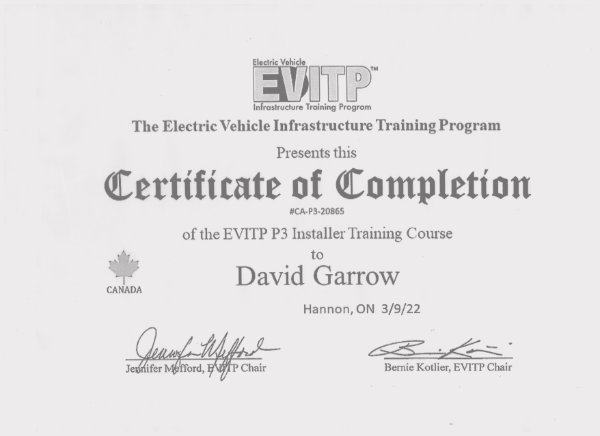- Full line of EV chargers for sale and install. We can install Level 3 DC Commercial Rapid Chargers, Level 2 home and business chargers, all the way down to an outdoor plug for you to trickle charge your new EV.
- We have single heads and dual heads EV Chargers, and ways to make your new high capacity charger work with your existing electrical system, or help you upgrade your home/commercial service to make room for multiple expansions down the road.
- Beware the $500 special out there, let us show you the difference and explain the nuance in this sometimes hard to grasp industry.

EV Car Charger Installation
Is a service upgrade required for your EV charger?
Level 2 EV chargers are a necessary convenience for drivers of electric vehicles that allows for more range on an overnight charge. They are large devices, and use as much or more power than an electric stove. Installing these devices is often straightforward for a professional electrician. But depending on whether you have a 100-amp or 200-amp panel in your home, you may be wondering: Will I need to upgrade my electrical panel for an EV charger?
Most new homes these days will come standard with a 200-amp electrical panel. These panels are designed to handle the electrical demands of the modern age, with many more appliances and devices demanding energy than ever before.
If your home has a 200-amp panel, you likely won’t need to upgrade it before installing a single home EV charging station. The main exception to this is if your 200-amp panel is already operating at or near its capacity. However, this would likely only be the case if your home has a higher power demand than most.
For homes with 60 or 100-amp panels, however, an electrical panel upgrade may be the best route. Electrical panels with a 100-amp capacity were standard for many decades, as this was sufficient for electrical demands years ago. Generally, however, a 100-amp panel is unable to handle the demands of most modern lifestyles along with a Level 2 EV charger.
There are two options that may enable homes with a 100-amp panel to have a Level 2 EV charging station installed. One is a load management system. For much less than a service upgrade, a load management system can be installed to automatically operate the EV Charger only when less than 80% of your house electrical load is being used. The second option that can be used is a transfer switch. This enables a large appliance (like a dryer or electric stove) to alternate with the EV charger when they are off. This is usually a manual switch.
Both of these devices enable homeowners to get more from a 100-amp panel and also cost less than an electrical service and panel upgrade.
While both load management units and transfer switches can allow for the installation of an EV charger with a 100-amp panel, these are short-term solutions. Older 100-amp panels still aren’t designed for modern energy demands. These panels often will struggle as additional appliances and devices are added.
Is a service upgrade a better option?
A service upgrade to 200 amps with an electrical panel replacement will be the best option for most in the long term. It allows for future expansion for additional EV chargers or faster level 2 chargers, is generally safer, and reduces tripping breakers due to electrical overloads. We can coordinate with your local distribution company, whether you’re in Cambridge, Kitchener or the surrounding area and do the service upgrade at the same time as the EV charging station installation and have it inspected all at once by the Electrical Safety Authority (ESA).
Learn more
Frequently Asked Questions
Yes, there are Level 1, Level 2, and DC fast chargers, each providing different charging speeds and power levels.
The time can vary depending on the EV charger’s power output and your vehicle’s battery capacity, but it typically ranges from 30 minutes to several hours.
that make solar power more affordable for homeowners.
While it is possible to use a standard outlet (Level 1 charger), it will be much slower compared to using a dedicated EV charger.
.
Yes, most EV chargers require professional installation by a qualified electrician to ensure safety and proper functionality.
Some advanced EV chargers offer mobile apps or online portals that allow users to check the charging status remotely.
Yes, it is possible to install multiple EV chargers at the same location if your electrical setup supports it.
The time taken to install an EV charger can vary depending on various factors such as the complexity of the installation and any additional work required on the electrical system.